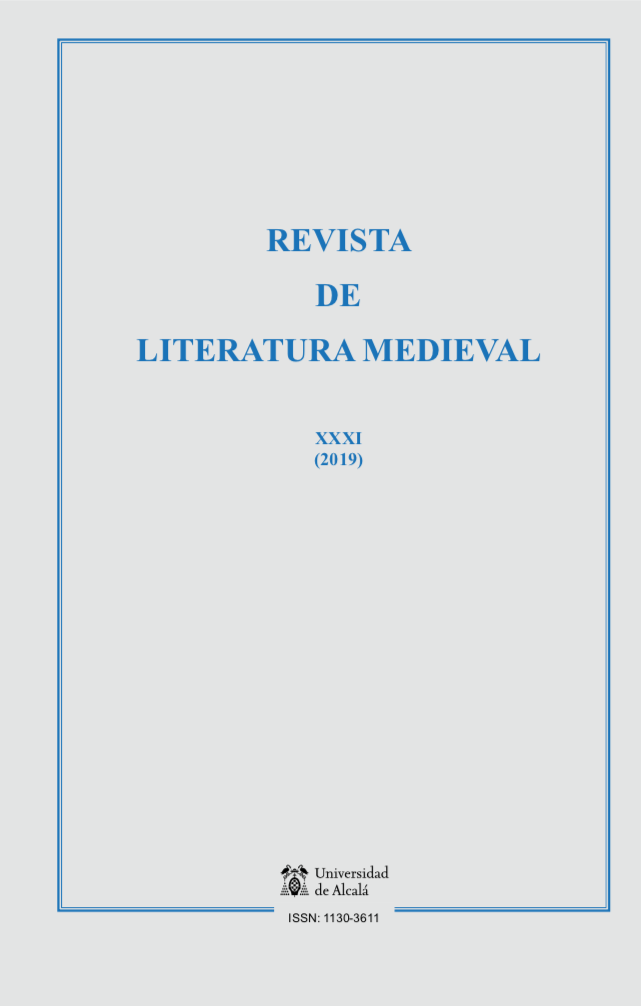The Afrenta de Corpes: Embodied Empathy in Cantar de Mio Cid
DOI:
https://doi.org/10.37536/RLM.2019.31.0.67332Keywords:
Embodied empathy, Cognitive studies, Robledo de Corpes, Mio Cid, Infantes de CarriónAbstract
This study is an effort to understand the ways in which the poet of the Cantar de Mio Cid employs rhetorical devices as a way of enhancing the embodied empathy in his audience. I look into theories of performativity extant during the composition of the Cantar that the Cid-poet may have utilized to heighten the dramatic effect of his poem. The Hispano-Roman rhetorician, Quintilian, offers a guideline for orators and performers on how to put themselves «in the shoes» of abused victims and in doing so, move their audience to tears and/or anger. Following these rhetorical strategies, the author of the Cantar stages a performative act of the Afrenta de Corpes, in which the Infantes de Carrión nearly killed their wives, to move the public to feel the harrowing pain of the victims as their own as well as intense anger toward the evildoers.
Downloads
Métricas alternativas
Downloads
Additional Files
Published
How to Cite
Issue
Section
License
The opinions and facts stated in each article are the exclusive responsability of the authors. The University of Alcalá is not responsible in any case for the credibility and aunthenticity of the studies.
Authors will retain the rights on their work, even if they will be granting the journal a non-exclusive right of use to reproduce, edit, distribute, publicly communicate and show their work. Therefore, authors are free to enter into additional, independent contracts for non-exclusive distribution of the works published in this journal (such as uploading them to an institutional repository or publishing them in a book), as long as the fact that the manuscripts were first published in this journal is acknowledged.
Works are published under the terms stipulated in the Attribution-NonCommercial-ShareAlike 4.0 International License (CC BY-NC-SA 4.0) that allows third parties to share the work under the following conditions:
Attribution — You must give appropriate credit, provide a link to the license, and indicate if changes were made. You may do so in any reasonable manner, but not in any way that suggests the licensor endorses you or your use.
NonCommercial — You may not use the material for commercial purposes.
ShareAlike — If you remix, transform, or build upon the material, you must distribute your contributions under the same license as the original.









